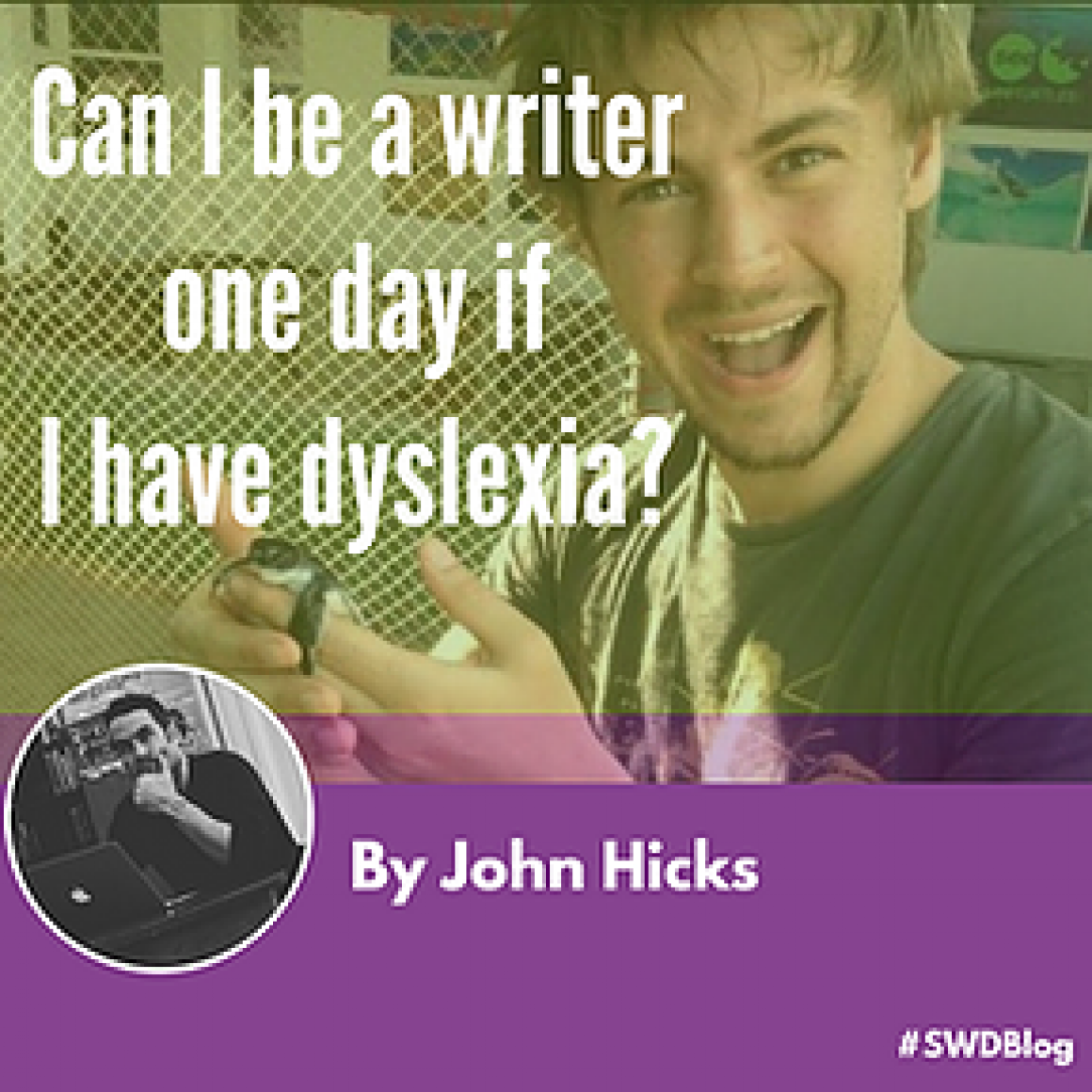Can I be a writer one day, if I am dyslexic?
I came across an excellent news story that I will tell you about in a moment which will answer the above question.
Before, I do that , lets look at the question. It is one that has in the background the self-defeating belief that if one has dyslexia, then they are automatically excluded from making decisions about going into certain careers. If we start to allow our children to believe that aspects of themselves automatically excludes them from certain activities then there is a risk that they will not feel good enough and that their self esteem will drop.
We should be realistic though. I am a big advocate of 'try anything'. For example, at school, I had a go at playing rugby and was in the school team. To be honest, whilst I played OK, my heart wasn't really in it. I tried a bunch of sports and they didn't get me excited. So I chose not to pursue sports. Sport didn't do anything for me. It was my thinking processes that stop me from pursuing sports. I was not motivated to want to really get into sport. On the other hand, when my music teacher first put a guitar in my hand, well, that led to a much loved hobby that I still enjoy today and at times has given me opportunities to play abroad in my band (still as a hobby). I am motivated because it gives me enjoyment. I'm not a virtuoso, but that was never my aim, I simply wanted to enjoy it.
The difference between playing sports versus playing the guitar? My thinking and my own sense of motivation.
The reality? I chose one over the other. The important thing is that I tried both.
Life is like this, we should encourage our children to try anything without the judgement of ability beforehand and as adults we should empower them to work out for themselves what they think that they are going to want to do. We should allow our young people to dream about possibilities and then through experience decide upon which possibilities are going to turn into opportunities. This helps to build self esteem as well as empower them to enjoy life more.
So, can I be a writer one day if I am dyslexic?
Yes, Yes, Yes!! Why not?
How do you define being a 'writer'? Of course, having dyslexia may affect your ability to read and write. It may mean that you need support for physically getting thoughts down on paper, but what it doesn't mean is that you don't have ideas, stories that you want to tell, concepts that you may want to communicate. Dyslexics are big thinkers and often are quite innovative in how they think, it is just that sometimes they may need some kind of support to get that thinking communicated via text.
So today I wrote this lovely article from a journalist called Will Haywood, who has dyslexia and has really struggled with physically writing. He has fine motor issues in terms of holding a pen and his spelling is not accurate.
In a recent article in Wales Online, with whom he is a journalist, Will talks about how he decided that he loved to write ie stories, blogs, articles and how he trained as a journalist to do so.
Photo by Will Heywood.

